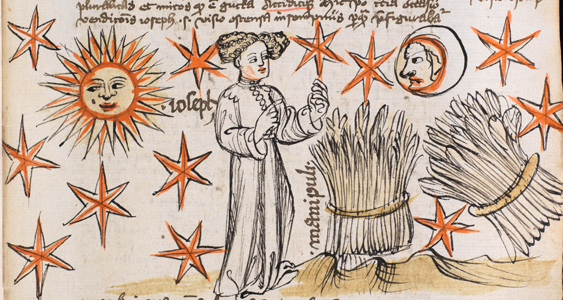
Joseph dreams that his brothers' sheaves all bow down to his. Then he dreams that "as it were the sun, and the moon, and eleven stars worshipping me." When he tells his brothers of his dreams, they are displeased (Genesis 37:5-10). The upright sheaf is labeled manipuli, "bundles."
Source: e-Codices
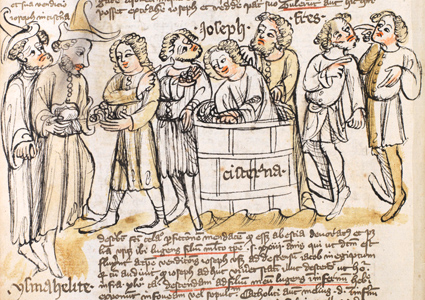
On the right the brothers cast Joseph into a cistern. On the left, they sell him to two men in Jew's caps labeled ysmahelite, "Ishmaelites" (Genesis 37:21-28).
Source: e-Codices
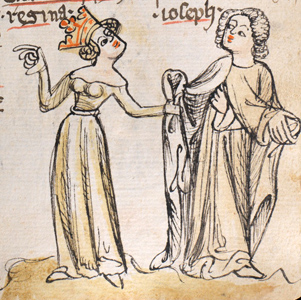
Joseph tempted by Potiphar's wife. "Catching the skirt of his garment, [she] said: Lie with me. But he leaving the garment in her hand, fled, and went out." She then used the garment as evidence against him, and he was cast into prison (Genesis 39:7-20).
Source: e-Codices
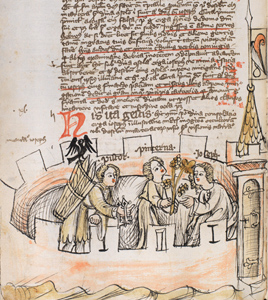
In prison, Joseph interprets the three-branched vine in the chief cupbearer's dream to mean he will be released from prison and returned to favor. But his interpretation of the three baskets in the chief baker's dream is that the baker will be hanged "and the birds shall tear thy flesh" (Genesis 40:1-19). The labels give the Latin words for "baker" and "cupbearer," and the artist has provided an ominous black bird on the baker's head.
Source: e-Codices
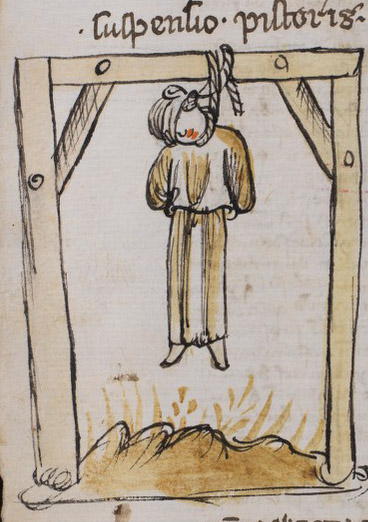
Joseph's interpretation of the dreams proves true. The cupbearer is rehabilitated, and the baker is hanged (Genesis 40:20-22). The label, suspensio pistoris, means "the hanging of the baker."
Source: e-Codices
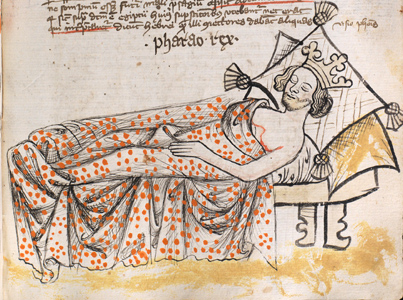
The Pharaoh has a dream of seven fat cows and seven lean, then he dreams of seven healthy ears of grain and seven sickly (Genesis 41:1-7).
Source: e-Codices
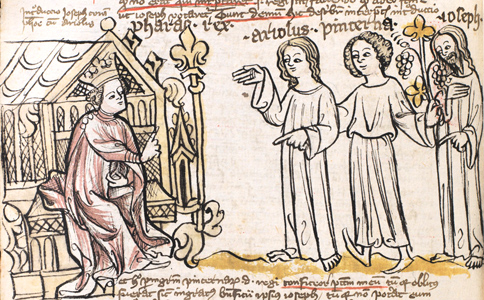
Pharaoh convenes "all the interpreters of Egypt" to interpret his dream. They are at a loss, so the cupbearer recommends that Pharaoh try Joseph, who correctly forecasts seven fat years to be followed by seven lean (Genesis 41:8-36). The man closest to the king is labeled ariolus, "soothsayer." The man next to him is the pincerna, "cupbearer."
Source: e-Codices
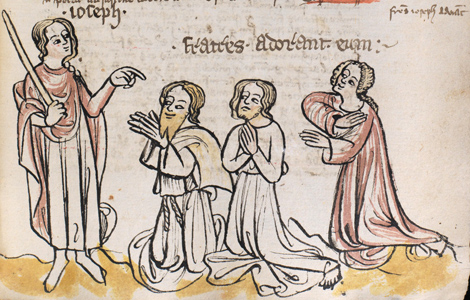
During the lean years Joseph's brothers come hoping to buy grain from Egypt. They do not recognize Joseph, but they bow down to him (Genesis 42:6-7). (The Vulgate says they "adored" him, as does the label given here.)
Source: e-Codices
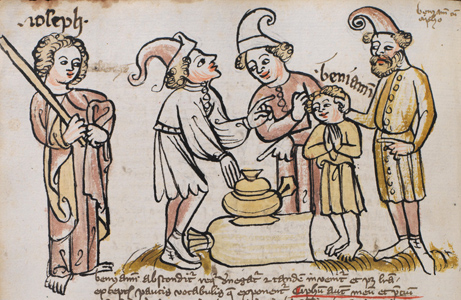
On the brothers' second trip to buy grain Joseph has his servant hide a silver cup in brother Benjamin's sack. Then Benjamin is accused of stealing and Joseph says he must be enslaved as punishment (Genesis 44:1-17).
Source: e-Codices
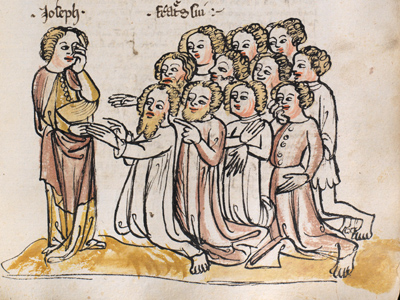
Judah tells Joseph that Benjamin's father will die if he hears the boy is lost. He offers himself as a slave in place of Benjamin. After this final test Joseph reveals himself to his brothers (Genesis 44:18-45:3).
Source: e-Codices
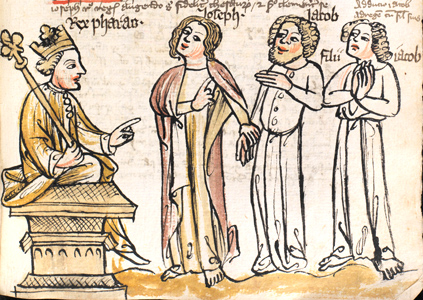
Joseph explains these events to Pharaoh, who donates choice land in Egypt to Jacob and his sons (45:17-20).
Source: e-Codices